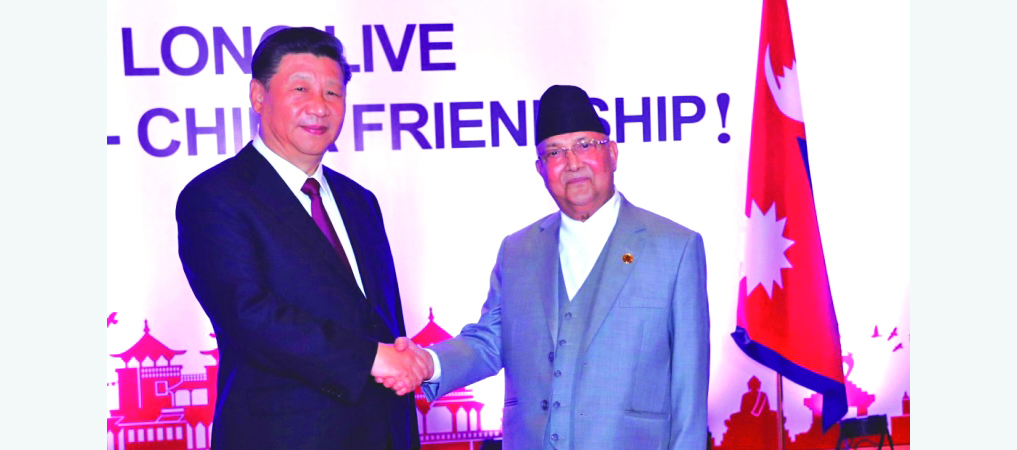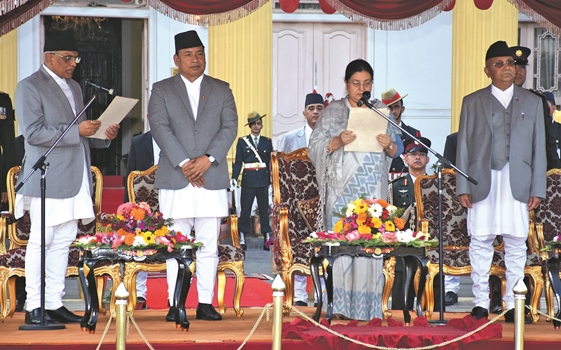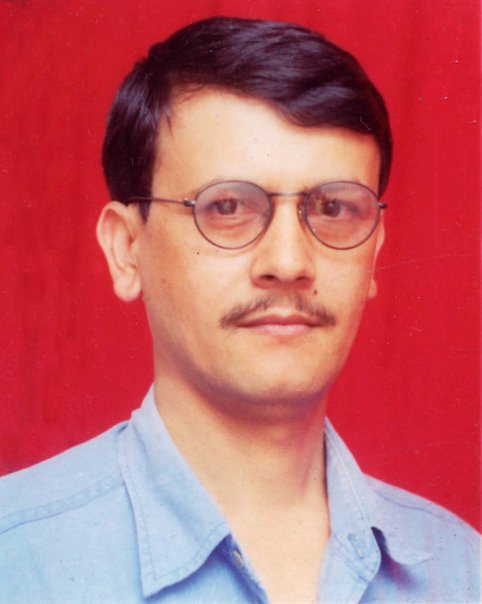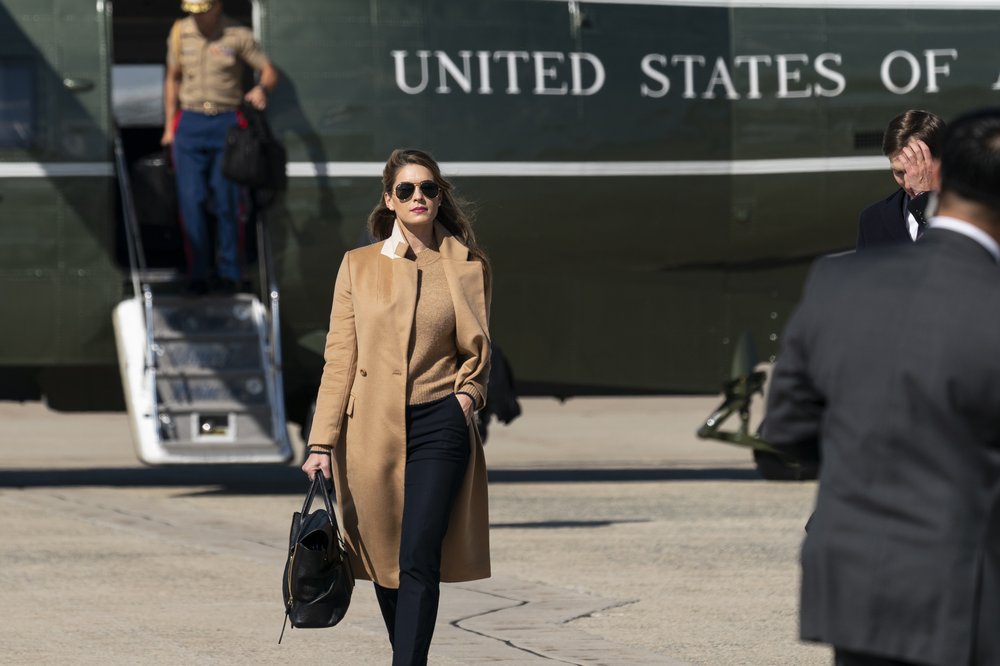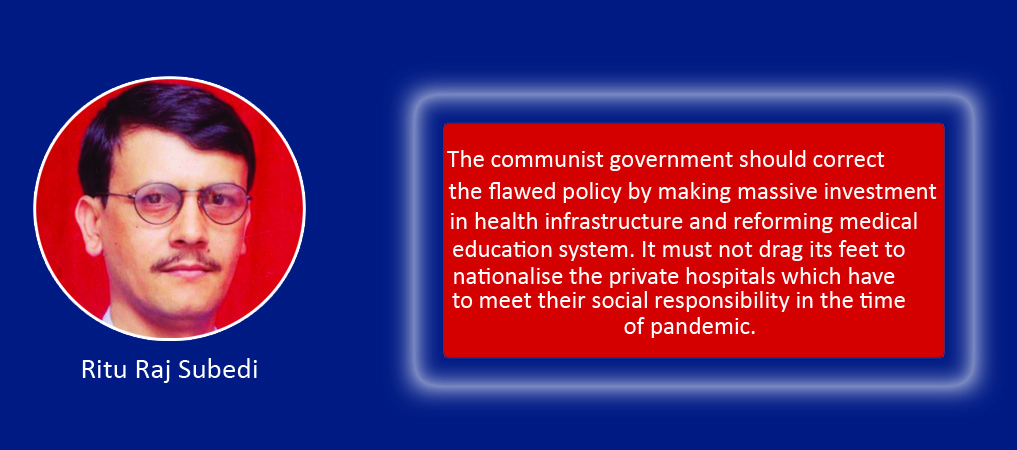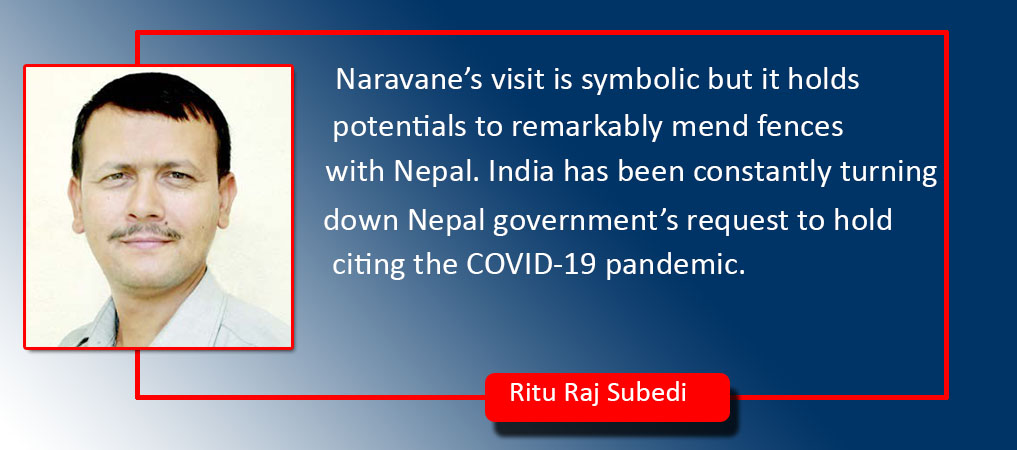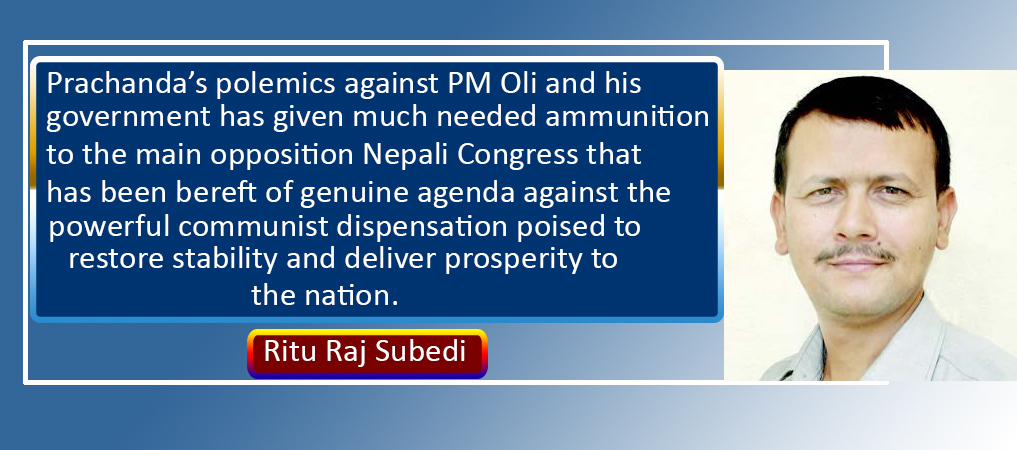Is NCP Headed Toward Division?
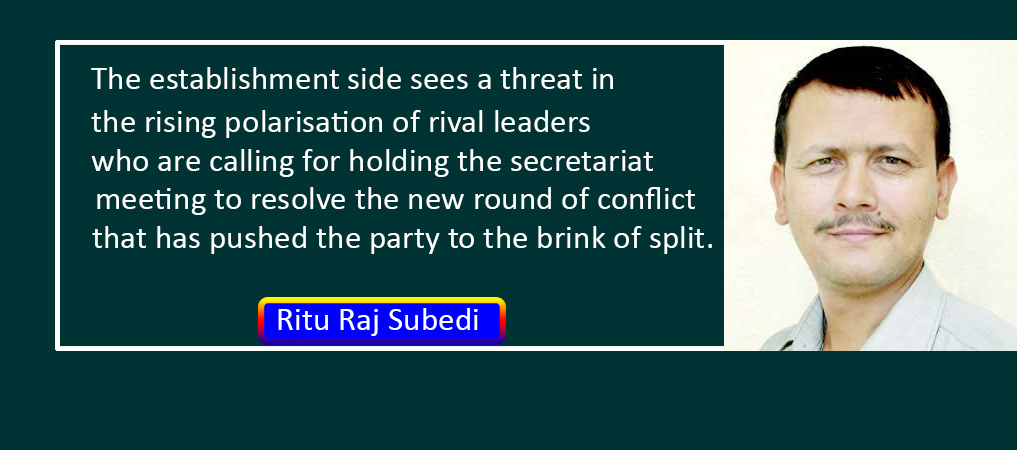
Ritu Raj Subedi
The intra-party bickering within the ruling Nepal Communist Party (NCP) has again taken a nasty turn. It has become a chaotic house marked by rumours, accusations and rebuttal of leaders. The confused party foot soldiers are unable to trace the ideological thread of raging dispute involving the top apparatchiks from rival groups. Lost in the shuffle, they are struggling to know which leaders are right and which are not. But it is obvious the futile internal strife has sent negative message to the public who are confronting the COVID-19 pandemic and the resultant economic recession simultaneously.
Psychological warfare
It appears that a psychological warfare is in full swing among the party’s stalwarts. Its cliques and cabals are holding their secret meetings to outdo each other. The other day Prime Minister and chairman KP Sharma Oli said that he would not resign from the post come what may. His remark took his rival faction aback. PM’s opponents insist that issue of resignation was merely a digression to fudge the pressing issue. Five out of nine members of secretariat – chairman Pushpa Kamal Dahal Prachanda, senior leaders Madhav Kumar Nepal and Jhalanath Khanal, vice-chair Bamdev Gautam and spokesperson Narayankaji Shrestha-- have now banded together to challenge Oli’s supremacy inside the party while pledging not to let the party split at any cost.
Prachanda has briefed his colleagues that Oli asked him to split the party in consensus and tread their separate paths. However, the PM has not owned up this statement in public. Oli has fallen short of one member to garner majority in the secretariat. Still he calls the shots. Prachanda has been rendered helpless despite being an executive chair. The dichotomy of power was laid bare on Friday when an informal meeting of secretariat, attended by above five members, decided to urge Oli to call for its formal meeting. The quintet hesitated to get tough with the PM for fear of increasing further cracks in the party. The deepening trust deficit is to blame for the current mess roiling the party that secured near two-thirds majority in the three-tier historic election in 2017.
A sense of insecurity is gripping the apex leadership. The establishment side sees a threat in the rising polarisation of rival leaders who are calling for holding the secretariat meeting to resolve the new round of conflict that has pushed the party to the brink of split. It has accused the rival leaders of not abiding by the agreement reached during the unification of the erstwhile CPN-UML and CPN-Maoist Centre in mid-May 2018. On the other, the PM’s nemeses insist that the PM has flouted a proposal endorsed by the party secretariat on September 11. Prepared by a six-member task force, the panel had made several recommendations, including the division of work between the two chairs and cabinet reshuffle, among others, to run the government and party smoothly.
As per the deal, the PM should concentrate himself on the affairs of government in such a way that it would deliver goods and services to the people effectively and efficiently. Similarly, it authorises chair Prachanda to exercise full-fledged executive rights to handle the party’s organisation in view of its general convention slated for April next year. The proposal obliges that the PM should consult the party while taking major decisions of government. This accord could not work out as expected because there are a lot of grey areas which the leaders can interpret to meet their personal and factional interests. The latest squabbling came to the fore after the PM and Prachanda clashed over the names of new faces to be inducted in the cabinet. Oli wanted to award some former Maoist leaders who stood by him during the unpleasant infighting. But the move was seen as a ploy to undercut the strength of Prachanda-led faction. However, the establishment has accused it of trespassing the PM’s executive rights and autonomy.
More than two and a half years have elapsed since the creation of the biggest communist force that aims to usher the nation into an era of durable peace, stability and development. But since then the NCP has undergone several rancorous moments and struggle among the top brass, undermining its fragile unity and structure. In fact, the unification was the marriage of convenience as it was guided by the strong desire of making electoral gains. The unity was struck in haste without developing a common ideology and achieving organisational assimilation. If the leadership had focused on finishing this twin-task single-mindedly in time, intra-party conflict would not have intensified to such an extent. Prior to the announcement of unification, they had struck an electoral alliance to pull off a dramatic win in the election but the widening rift has precluded it from translating the sweeping mandate into socio-economic transformations Nepalis have been waiting for decades.
Missing golden chance
No matter how fierce the internal strife is, the party is unlikely to split because no one wants to lose power. In case the party divides, the nation also misses a golden chance of restoring stability and carrying out the democratic restructuring of the society. PM Oli needs to be more accommodative and take his opponents into confidence. They are not his foes but friends. On the other, Prachanda should dare to mobilise 800,000 cadres to shape the party as well as fight the pandemic. He’d better stop setting his sights on grabbing power all the time. Both sides need to be more cautious. They must refrain from dragging the President into the internal dispute of party for such an act berates the constitutional role and dignity of the head of the state.
(Deputy Executive Editor of The Rising Nepal, Subedi writes regularly on politics, foreign affairs and other contemporary issues)
Recent News

Do not make expressions casting dout on election: EC
14 Apr, 2022
CM Bhatta says may New Year 2079 BS inspire positive thinking
14 Apr, 2022
Three new cases, 44 recoveries in 24 hours
14 Apr, 2022
689 climbers of 84 teams so far acquire permits for climbing various peaks this spring season
14 Apr, 2022
How the rising cost of living crisis is impacting Nepal
14 Apr, 2022
US military confirms an interstellar meteor collided with Earth
14 Apr, 2022
Valneva Covid vaccine approved for use in UK
14 Apr, 2022
Chair Prachanda highlights need of unity among Maoist, Communist forces
14 Apr, 2022
Ranbir Kapoor and Alia Bhatt: Bollywood toasts star couple on wedding
14 Apr, 2022
President Bhandari confers decorations (Photo Feature)
14 Apr, 2022



